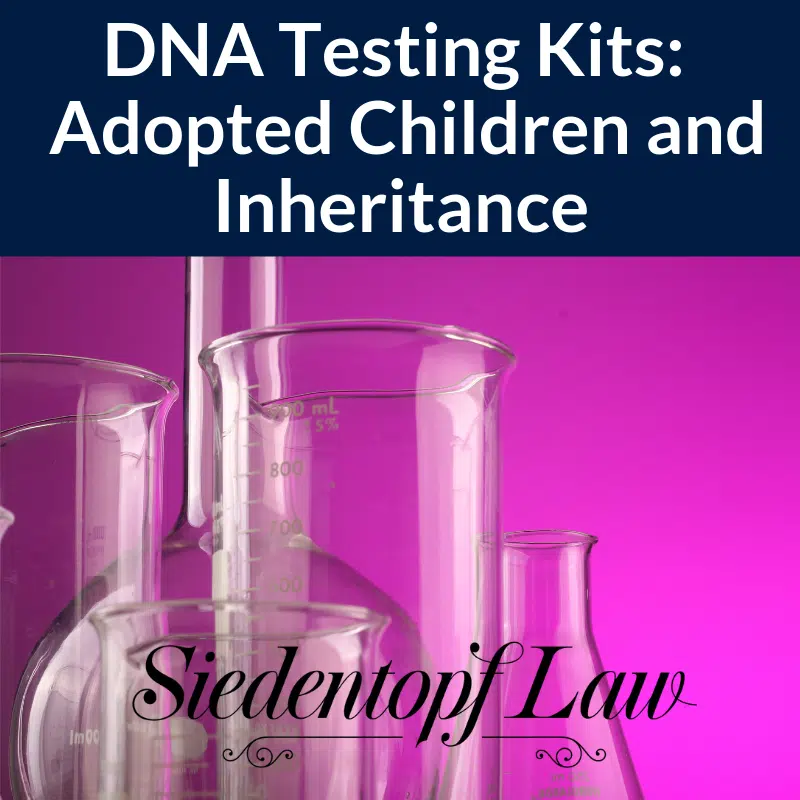Summary: While adopted children have no legal right to their biological parents’ assets, the birth parents can still include the children in their will. The situation depends on the child’s personal relationship to their birth parents and biological family.
In recent years, there has been an increased interest in DNA testing. Part of the appeal is the affordability of the testing kits and the instant access to information via the web. Another aspect is the potential of learning more about your ancestry and possibly identifying new family members. At Siedentopf Law, one of the questions our clients ask concerns DNA testing and adoption: “If I find my biological parents through DNA testing, can I inherit from them – even though I have been adopted by another family?”
Recently, we took a look at how DNA testing kits work and how the technology enables researchers to answer questions about familial relationships such as parents, grandparents, siblings, aunts/uncles, and lineage. DNA testing can also be an important tool in solving estate disputes. So, what happens if the test results lead a person to their biological parents? Under Georgia Law, a child that was adopted by another family has no legal right to inheritance or assets from their biological parents.
“[A] decree of adoption terminates all legal relationships between the adopted individual and his relatives, including his parent, so that the adopted individual thereafter is a stranger to his former relatives for all purposes, including inheritance…” (Georgia Code § 19-8-19).
When a child is adopted, the biological parents’ legal rights to that child is terminated and all rights are transferred to the adoptive parents. By law, the child is treated as though he or she had been born to the adopting parents – which means that child can inherit from their adoptive parents and other family members. (The exception here is step-parent adoptions).
While adopted children have no legal right to their biological parents’ assets, the birth parents can still include the children in their will. The birth parents would need to be clear on how to identify and contact the adopted children. There could still be an issue; however, if the biological family contests the will and the inclusion of adopted children. If the biological parents pass away without a will or estate planning documents in place, the adopted children would not automatically inherit – again, because of the lack of legal connection.
Under Georgia Law, an adopted child cannot inherit from his or her birth parents. But this situation can change depending on the child’s personal relationship to their birth parents and biological family. For more on DNA testing kits, visit our blog DNA Kits and Estate Inheritance. If you have additional questions about adoption and inheritance, contact Siedentopf Law via our website at EstateLawAtlanta.com or by calling (404) 736 – 6066.
© Sarah Siedentopf and Siedentopf Law, 2019. Unauthorized use and/or duplication of this material without express and written permission from this site’s author and/or owner is strictly prohibited. Excerpts and links may be used, provided that full and clear credit is given to Siedentopf Law and EstateLawAtlanta.com with appropriate and specific direction to the original content.








